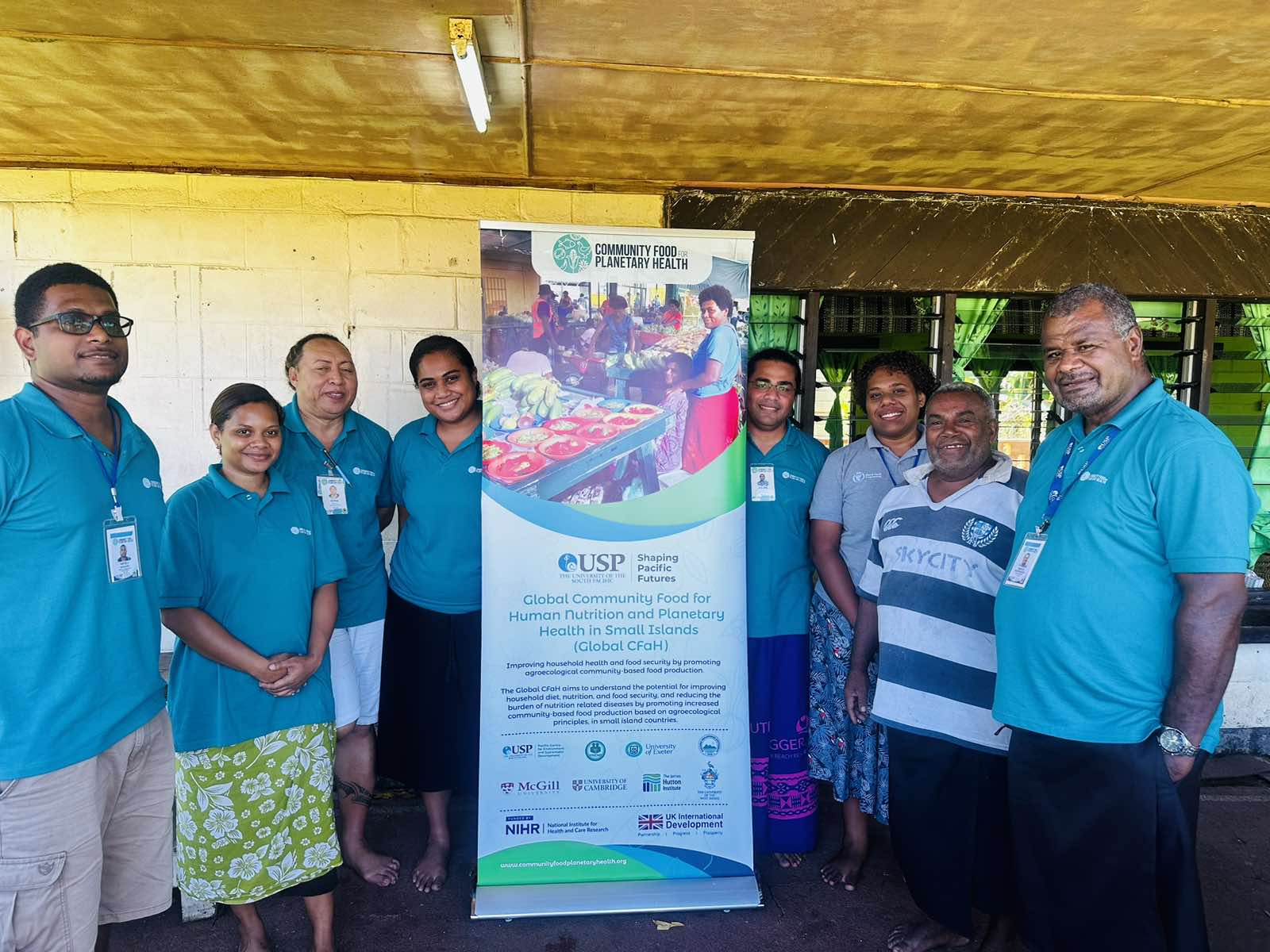Related News

The Global Community Food for Planetary Health (GCFaH) recently completed its quantitative full-scale baseline data collection, which began mid-March by interviewing households and engaging with family members in the three provinces of Naitasiri, Tailevu, and Rewa, gathering data from over 300 households and interviewing over 500 participants, bringing the project one step closer to better understanding the complex dynamics of community food and planetary health.
Mr Sairusi Bosenaqali, who is from Tonia in Tailevu province, emphasised the importance of such projects, saying, “The Global CFaH Baseline survey project has definitely made an impact on the villages and community members, igniting community interest in the importance of balanced nutrition meals and the use of locally available food.”
He added, “This initiative has raised awareness about community members’ sugar levels, high blood pressure, and body mass index, with PaCE-SD receiving praise for providing these services to the communities’ doorsteps and enabling people to monitor their health more closely.”
Fiji, like many Pacific Island nations, faces unique challenges related to health and nutrition. One of the most pressing issues is the rise in non-communicable diseases (NCDs), such as obesity and diabetes, which are major contributors to the country’s health burden.
Dr. Hilda Sakiti-Waqa, the project’s Co-Investigator at the Pacific Centre for Environment and Sustainable Development (PaCE-SD), emphasised the project’s significance, saying, “The research goes beyond the call of duty.” This sentiment is shared throughout the project, which is not satisfied with simply collecting data but is dedicated to effecting real change.
She went on to say, “At the heart of the Global CFaH project is an agroecological approach that seeks to improve health and nutrition while also creating environmental, social, and economic benefits that extend beyond the realm of research.”
The Global CFaH project, led by PaCE-SD and The Foundation for Rural Integrated Enterprises and Development (FRIEND), is pioneering a new path for the Pacific region—one that prioritises community well-being and resilience.
Mr. Filipe Veisa, Research Fellow and Field Lead for the GCFaH Project for PaCE-SD, highlights the critical role of baseline data in understanding the current scenario regarding diet, food sources, and diversity in communities. The team has completed surveys in eight communities across three provinces (Naitasiri, Tailevu, and Rewa) as part of the dietary diversity household survey (DDHS) and is eager to gather qualitative and TAPE data next.
The GCFaH project’s research has been conducted in Fiji, the Philippines, St Vincent, and St Lucia. The University of Exeter and the University of the West Indies serve as joint lead institutions, alongside the University of the South Pacific (USP) and FRIEND partners in Fiji, as well as universities in the Philippines, the United Kingdom (UK), and Canada.
NCDs, including heart disease, cancer, chronic respiratory disease, and diabetes, are the leading causes of death worldwide and a growing global health concern.
The research is funded by the National Institute for Health Research, UK, and in collaboration with key partners such as USP and FRIEND, the project is a beacon of hope in the fight against NCDs.
By engaging communities, conducting innovative research, and advocating for policy changes, the Global CFaH project is paving the way for a healthier, more sustainable future for Fiji and beyond.